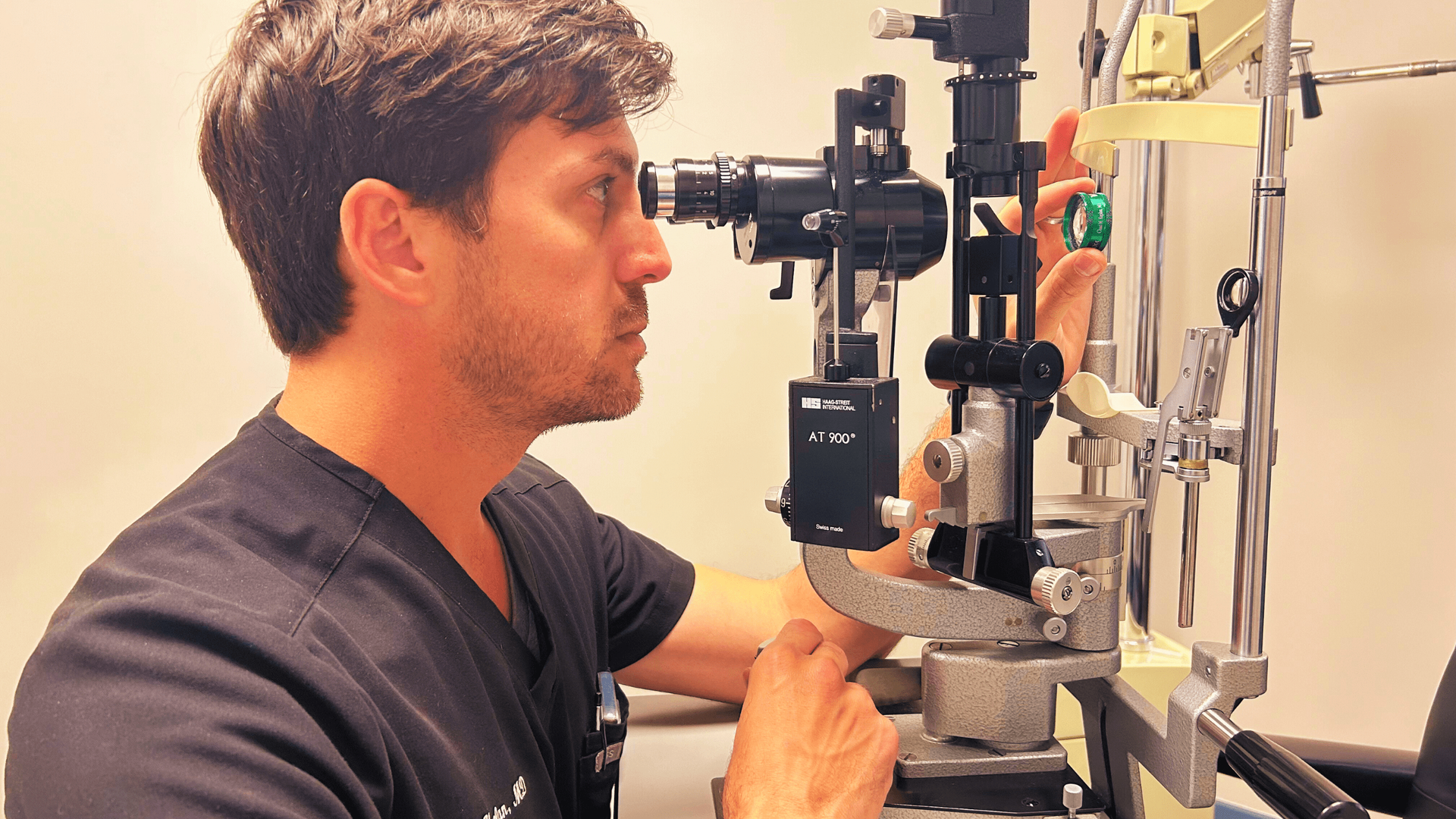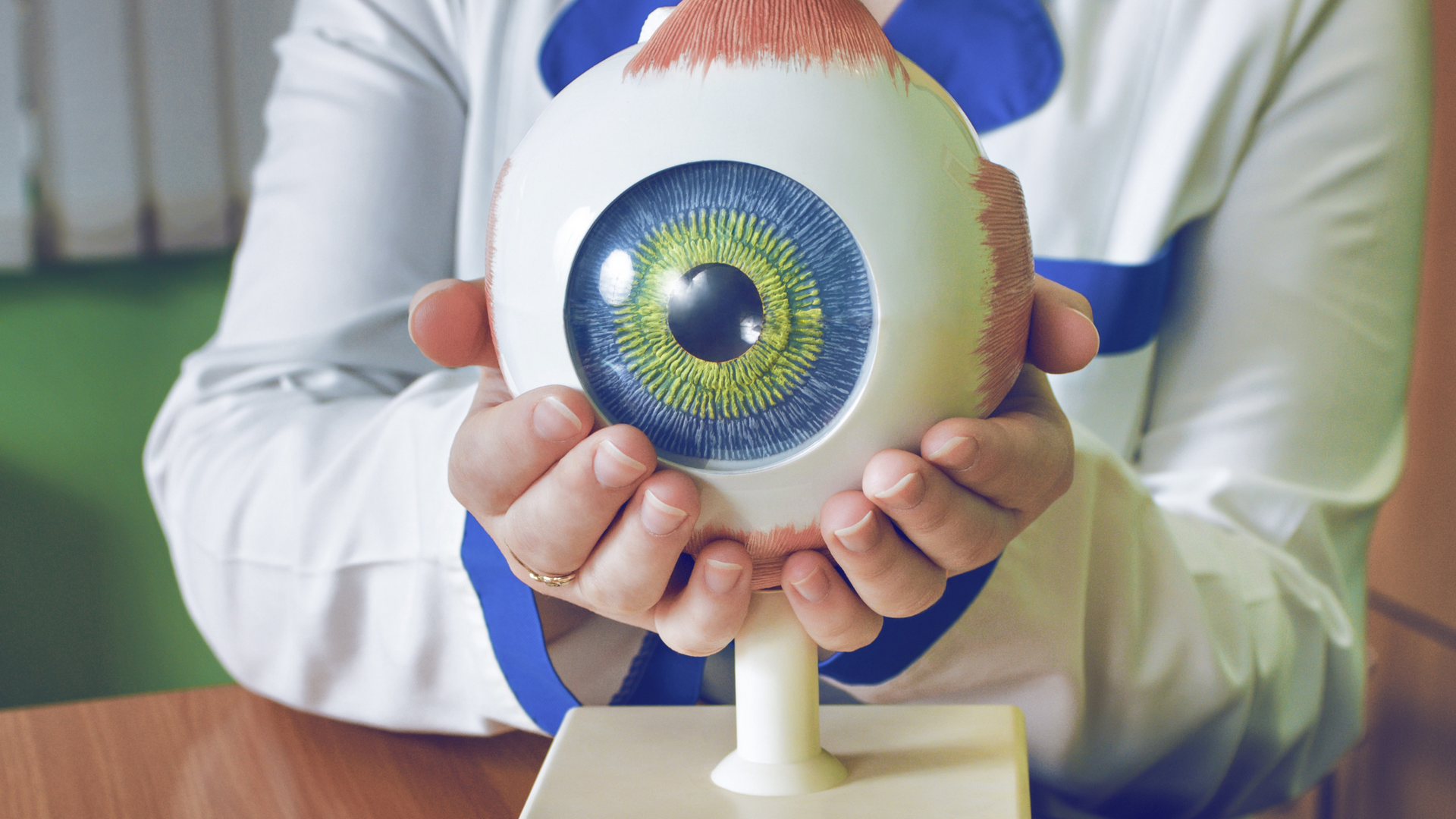Follow Us
10 Street Name, City Name
Country, Zip Code
786-829-6395
contact@ophthalmologistmiami.com
Top 30 Questions To Ask Your Eye Doctor
Getting a comprehensive eye exam is one of the most important things you can do for your vision and overall health. However, many patients miss out on key information by not knowing the right questions to ask their eye doctor. This article will equip you with the top essential questions to get the most out of your appointment. We'll cover key topics like understanding your test results, treatment options, and protecting your vision. Bring this list to your next eye exam to become an empowered partner in your eye care.
Before Your Appointment
Getting your eyes checked is like taking your car for an oil change - being prepared ahead of time helps everything run smoothly! Here are some tips to optimize your visit:
- Call ahead to ask if you need to fill out any paperwork. Nothing's worse than twiddling your thumbs in the waiting room!
- Make a list of any eye conditions, medications, or supplements you take. Your doctor will thank you for saving them readout time!
- Ask if you should come with your current glasses or contacts. Bringing your specs allows them to check the prescription.
- Book your appointment at a time you know you'll be alert. You want to be at 100% to accurately test your vision!
- Have a friend accompany you who can drive you home if your eyes get dilated. Those drops make everything look trippy!
Bring this handy checklist to skip the scrambling and sail through your exam smoothly. You'll get in and out and have more time for the fun stuff!
Understanding Your Vision Test Results
The moment you've been waiting for - it's time to review your eye exam results! This is your chance to gain crystal clarity about your vision health, but it requires asking the right questions. Arm yourself with this cheat sheet to master the art of making sense of all those tests.
Start With the Basics
- What exactly was each test evaluating? Knowing whether it assessed your cornea, retina, eye pressure or something else provides helpful context. Don't leave until you understand what each specific exam was screening for.
- Can you explain the results in simple, everyday terms? The medical jargon flies miles over most people's heads. Politely ask your doctor to break down the results in plain language you can actually understand. If they mention conditions like presbyopia or astigmatism, have them explain what it means for your vision in layman's terms.
- How do my results compare to my last exam? Subtle differences from your past visits can hold big implications. Make sure you know whether your vision has improved, declined or stabilized over time.
Dig Into Recommended Treatments
- Based on my exam, what prescription do you recommend for eyeglasses or contacts? Whether it's adjusting your contact lens brand or increasing your glasses power, understand why those specific recommendations are suggested.
- If you're advising cataract surgery, walk me through how the procedure works. Understanding the steps and techniques used during the surgery will help you know what to expect.
- For conditions like glaucoma or dry eye, please explain recommended medications. Knowing the purpose, proper usage and potential side effects for prescribed eye drops or pills allows you to follow treatment plans properly.
- What are the pros and cons of contact lenses vs LASIK vs cataract lens implants? Discussing the comparative risks and benefits helps choose the right vision correction option for your lifestyle and needs.
Address Any Red Flags
- I noticed you recommended a follow-up appointment sooner than usual - should I be concerned? Uncovering why more frequent monitoring is needed prevents anxiety about potential red flags.
- You mentioned a higher risk of macular degeneration - what precautionary steps do you suggest? When a diagnosis raises concerns, advice for preventative care lets you proactively preserve your vision.
- What symptoms or changes should I watch for with this new diagnosis? Knowing how to spot issues early helps initiate prompt treatment before they worsen.
- How might this eye condition impact my ability to drive safely or maintain my independence? Understanding impacts to your daily life activities allows you to make preparations and lifestyle adjustments.
Before You Leave
- Would you mind summarizing the key takeaways from my exam results? A recap helps cement understanding of the most important points. Take notes to refer back to later.
- What signs or symptoms should I call the office urgently about? Having clear guidance on when to seek immediate help prevents delays in treating time-sensitive issues.
- How soon should I schedule my next follow-up visit? Booking next appointments right away reduces the chance of neglected vision care. Consistency is key!
Grasping and interpreting your vision evaluation takes diligence. But walking out the door with clarity and confidence is worth it. Treat each exam as a fresh chance to take charge of your eye health!
Treatment Options for Eye Conditions
If your exam unveiled an eye condition, don't panic! There are solutions to restore your vision. But choosing the right treatment requires asking smart questions:
- What are the pros and cons of each option? Compare things like safety, effectiveness, side effects, and recovery time.
- Which treatment do you recommend for my specific case? Doctors weigh factors like your age, health, lifestyle, and condition severity.
- Walk me through how the procedure works. Understanding the steps eases anxiety for things like cataract surgery or LASIK.
- What type of anesthesia would be used? Local anesthesia or general anesthesia has different risks and recovery times.
- How long does the procedure take? Cataract surgery may only take 15-20 minutes, while LASIK can take 15 minutes per eye.
- Would I need someone to drive me home afterward? You'll likely need assistance getting home safely after procedures like cataract surgery.
- What is the typical recovery time? Timelines range from days for LASIK to weeks for cataract surgery. But everyone heals differently.
- What medications or eye drops will I need for recovery? Proper post-op care is key. Make sure you understand usage instructions.
- How much time off work will I need? It varies case by case, but most people take off 1-2 days for LASIK up to 1-2 weeks for cataract surgery.
- When can I resume normal activities like driving? Your doctor will assess your progress and provide return-to-activity guidance.
- What results and vision improvements can I expect? Understand both short and long-term outcomes so you know what to anticipate.
Asking thoughtful questions allows you to weigh options confidently. Don't be afraid to probe for details - it's your eyesight on the line!
Follow-Up Care and Lifestyle Changes
Don't ditch those coke-bottle glasses just yet - you still need follow-up care! Here are crucial questions for your post-exam phase:
- How often should I schedule follow-up appointments? More frequent visits are key for monitoring conditions like glaucoma or diabetes.
- What symptoms should prompt an urgent visit? Recognizing emergency red flags like flashes or floaters prevents dangerous delays.
- Do you recommend any lifestyle changes? Steps like quitting smoking, exercising, or limiting screen time can boost eye health.
- Are there dietary adjustments you advise? Foods rich in lutein, zinc and vitamin C may benefit your vision.
- Should I get blue light-blocking computer glasses? They could alleviate digital eye strain if you're logged on for hours.
- What about UV-blocking sunglasses? They provide protection against sun damage that can lead to cataracts.
- How do I properly care for prescribed eyedrops or contacts? Improper use increases infection risks - make sure directions are crystal clear.
- Will I still need reading glasses after cataract surgery? Don't toss those cheaters just yet - you may still need help with close-up vision.
Caring for your eyes doesn't end when you walk out the door. Book those follow-ups and embrace healthy habits to stay on the path to proper vision!
Protecting Your Vision
Your eyes are precious! Shield them from harm with these tips:
- What type of sunglasses do you recommend? Look for ones that block 99-100% of UVA/UVB rays.
- Should I wear sunglasses or a brimmed hat when outside? Both provide shade from sun damage that can cause cataracts.
- Are photochromic lenses a good choice? Yes, they conveniently darken in sunlight to protect eyes.
- How can I avoid dry eye when using contacts? Limit wearing time, use rewetting drops, and avoid screens before bed.
- What's the proper way to clean contact lenses? Rub, rinse, disinfect - and replace them routinely to thwart infection.
- Should I wear goggles or safety glasses when playing sports? Protective eyewear prevents traumatic eye injuries while playing ball.
- How can I reduce blue light exposure from screens? Follow the 20-20-20 rule, use night shift mode, or get blue-light filtering glasses.
- Are there any hobbies I should avoid to protect my eyes? High-risk activities like paintball and boxing can damage eyes.
- How do I safely remove mascara or eyeliner? Gently use a dedicated makeup remover around the eyes to avoid pulling.
Your eye doctor wants you to see clearly for years without damage. So take their prevention tips to heart and keep your vision in check!
Latest Advancements in Eye Treatments
The future looks bright when it comes to eye care innovations! Stay ahead of the curve with these questions:
- What new cataract surgery techniques have been developed? Options like laser-assisted surgery offer greater precision.
- How do the latest intraocular lenses (IOLs) for cataracts compare to older versions? Newer IOLs often provide better visual acuity and reduce dependency on glasses.
- What can you tell me about modern LASIK technology? Advanced lasers now track eye movements for more accurate corneal reshaping.
- How have glaucoma treatments improved over the past decade? Minimally invasive glaucoma surgeries (MIGS) have faster recovery times than traditional procedures.
- Are there any promising clinical trials or research for macular degeneration? Emerging stem cell and gene therapies aim to restore damaged retina tissues.
- What future innovations in eye care can I look forward to? Telemedicine, retinal implants, and pharmaceutical treatments could transform vision care.
- How long until technologies like smart contact lenses become mainstream? Though still being refined, they could provide continuous diagnostic monitoring in the near future.
- Are you incorporating AI and machine learning technology in your practice? It assists with screening and diagnosing eye diseases faster and more accurately.
- Can I use a virtual reality headset if I've had prior LASIK surgery? Discuss any special precautions, as headsets can dry eyes and flap complications are possible.
- Will vision correction procedures like LASIK become obsolete in the future? While advancements are on the horizon, proven procedures will remain relevant for most patients.
Your eye doctor stays on top of the latest research and FDA approvals. Discussing innovations keeps your vision care plan state-of-the-art!
Summary
The key to clarity and confidence in your eye care is to ask the right questions. Use this guide as a starter checklist - but don't stop there. Knowledge is power when it comes to your vision, so dig deeper. Discuss concerns, understand options, and most importantly - schedule regular eye exams. Protecting your sight starts with you!
Now you can tackle your next appointment like a pro. Here's to many years of healthy, happy seeing ahead!
If you're interested in learning more about our Ophthalmology Miami, please feel free to read more on our Cataracts or Glaucoma services. Also, see what our patient reviews and other blog posts about cataracts and glaucoma.


Call the Ophthalmologist Miami team to discuss how we can help you with your glaucoma and cataract treatment!
Ophthalmologist Miami is a Miami eye doctor that has treated eye diseases and performed Glaucoma surgeries, Cataract Surgeries for hundreds of patients in the Miami, Fort Lauderdale, and South Florida metropolitan area.
Made with ♥ in Miami, FL




